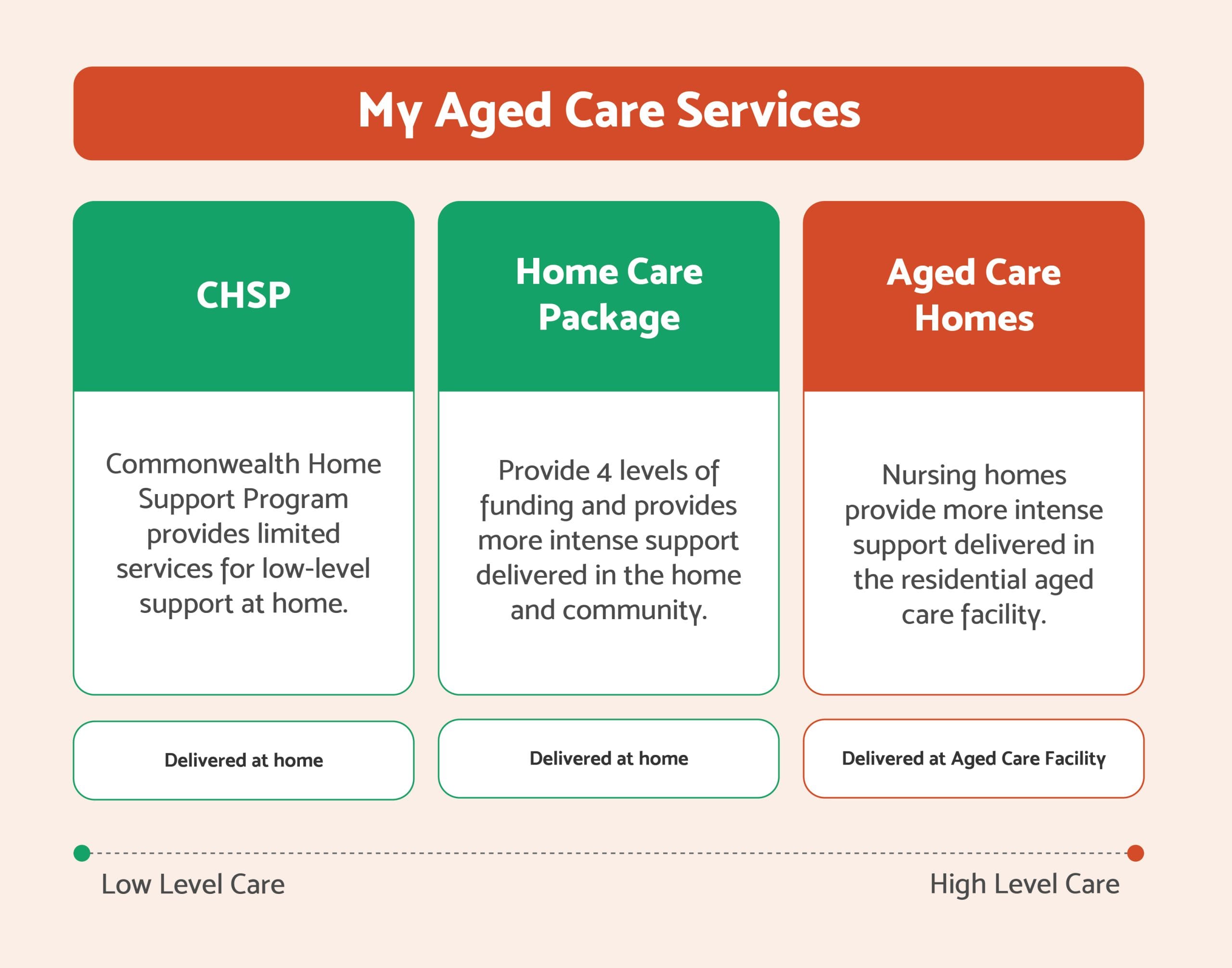How to assess whether your support at home provider meets NDIS standards
Wiki Article
Everything About Home Treatment Providers for People With Disabilities: NDIS Registered Assistance
Home treatment solutions under the NDIS play a crucial role in sustaining individuals with specials needs. These solutions are designed to enhance day-to-day living with customized assistance, ranging from personal like movement assistance. Understanding how to navigate these options can be complex. This summary explores the various elements of NDIS home care, from readily available services to the selection of suppliers, highlighting essential considerations for those looking for support. The journey towards empowered treatment begins here.Comprehending the NDIS and Its Function
The National Impairment Insurance Policy Scheme (NDIS) functions as a transformative structure developed to offer assistance and services for individuals with impairments. Established to boost the quality of life and assurance equitable accessibility to essential resources, the NDIS equips individuals by providing individualized strategies customized to their special requirements. It intends to promote independence, making it possible for individuals to pursue their personal objectives and aspirations.Through a structured technique, the NDIS assigns financing for numerous assistances, consisting of education and learning, work assistance, and community participation. This comprehensive plan not only concentrates on prompt treatment yet also stresses lasting developmental outcomes. By promoting choice and control, the NDIS motivates participants to pick their preferred provider, assuring that treatment straightens with their worths and preferences. Ultimately, the NDIS stands for a significant dedication to improving the lives of individuals with handicaps, fostering inclusivity, and constructing an extra encouraging society.Sorts Of Home Treatment Provider Available
Numerous kinds of home treatment solutions satisfy people with handicaps, mostly concentrating on individual care help and reprieve care alternatives. Personal care aid gives necessary support with everyday tasks, while respite treatment provides temporary relief for primary caregivers. Understanding these solutions is vital for guaranteeing the well-being of both people with specials needs and their households.Personal Treatment Help
While navigating day-to-day life can offer challenges for individuals with handicaps, individual care assistance supplies crucial support customized to their distinct requirements. This kind of home care solution encompasses a variety of activities made to advertise freedom and enhance high quality of life. Personal care aides help with daily tasks such as showering, clothing, brushing, and toileting, guaranteeing individuals maintain individual health and comfort. They may likewise aid with meal preparation, medicine administration, and movement assistance. By providing customized treatment, these professionals encourage individuals to engage even more totally in their social activities and daily routines. Generally, personal treatment help plays a substantial function in cultivating self-respect and freedom for those with handicaps, allowing them to prosper in their home atmosphere.
Respite Treatment Options
Break treatment offers as an essential resource for families and caretakers of people with specials needs, supplying short-lived remedy for the needs of daily caregiving. This sort of solution can take numerous types, including in-home break care, where qualified experts visit the home to aid with treatment tasks. Family members may opt for facility-based respite treatment, where people obtain care in a specific atmosphere, allowing caretakers to take a break. Additionally, some companies supply emergency respite services for unexpected conditions. These alternatives not only help alleviate caregiver stress and anxiety yet also advertise the health of people with impairments by offering them new experiences and social communication. On the whole, respite treatment plays a crucial function in supporting both caretakers and those they look after.
How to Gain Access To NDIS Home Treatment Solutions
Accessing NDIS home care solutions includes recognizing the eligibility criteria established forth by the National Special Needs Insurance Coverage System. People must browse an organized application process to safeguard the required support tailored to their requirements. This area will clarify both the qualification demands and the actions included in requesting services.Eligibility Requirements Explained
To receive NDIS home care solutions, people need to satisfy specific eligibility standards that examine their requirements and circumstances. First, candidates need to be matured in between 7 and 65 years and have a significant and long-term disability that influences their ability to do day-to-day activities. Additionally, they need to be an Australian resident, a long-term local, or hold a Protected Unique Category Visa. The NDIS requires evidence of the handicap, commonly through clinical analyses or reports. In addition, individuals should demonstrate that they require support to take part in economic and social life. These criteria guarantee that solutions are guided towards those who genuinely require support, promoting self-reliance and enhanced lifestyle for individuals with impairments.
Application Process Actions
Navigating the application procedure for NDIS Bonuses home care solutions involves a number of clear steps that individuals have to comply with to guarantee a successful outcome. Prospective candidates need to establish their eligibility based on the criteria set by the NDIS. Next, they require to gather relevant documentation, consisting of clinical reports and personal recognition. Following this, individuals can finish the Accessibility Request Kind, which is necessary for initiating the application. When sent, the NDIS will certainly analyze the application and may ask for added information or explanation. After approval, participants can develop an individualized plan outlining their certain demands and assistance choices. Finally, they can choose authorized solution suppliers to provide the needed home treatment solutions, ensuring that they receive suitable help customized to their demands.Selecting the Right Home Treatment Provider
When picking a home treatment service provider for individuals with handicaps, it is essential to consider numerous elements that ensure the very best fit for their unique needs. Evaluating the provider's credentials and experience in serving people with comparable handicaps is essential. This ensures that caretakers possess the required skills and understanding to deliver proper support.Next, families should examine the series of services used, in addition to the flexibility in treatment plans, to fit changing requirements. Interaction is another substantial aspect; a supplier that stresses clear dialogue can cultivate a collaborative environment between caregivers and families.Furthermore, it is significant to evaluate the supplier's online reputation in the community, which can typically be assessed via reviews and endorsements. The compatibility of caretakers with the person should not be neglected, as a positive connection can boost the overall care experience.Financing and Budgeting for Home Care Services
Just how can families successfully manage the monetary aspects of home treatment services for individuals with specials needs? Comprehending the numerous financing choices offered is necessary. The National Handicap Insurance Scheme (NDIS) provides financial backing customized to private requirements, enabling households to assign funds for required services. Families ought to evaluate their NDIS plan, making certain it aligns with required home treatment services. home care providers melbourne.Developing a thorough spending plan can aid in tracking expenditures and taking care of funds a lot more effectively. This budget needs to consist of anticipated prices for personal treatment, therapy, and reprieve solutions. Additionally, families must explore various other financial aid programs or subsidies that might he has a good point be offered at the state or local level.Regularly reviewing and readjusting the spending plan assures that families remain on the right track and can react to any changes in treatment requirements. In general, positive financial preparation and resource recognition are vital to efficiently managing home care service expensesThe Duty of Support Organizers in NDIS
Assistance planners play an essential function in leading the complexities of the National Disability Insurance Policy Scheme (NDIS) for people with impairments. They assist individuals in recognizing their NDIS strategies, ensuring they make notified selections regarding their services and supports. Support coordinators assist navigate the typically detailed internet of offered sources, attaching individuals to suitable carriers and services tailored to their distinct needs.Additionally, they assist in developing techniques that enhance individuals' freedom and community participation. By fostering collaboration in between numerous stakeholders, consisting of provider and family members, assistance planners develop a cohesive support network. They also keep track of and examine the performance of services, making required adjustments to maximize end results for individuals. Eventually, assistance coordinators empower individuals to take control of their lives, advertising greater autonomy and a better of life within the structure of the NDIS. Their proficiency is very useful in assisting people attain their personal objectives and goals.Tips for Maximizing Your Home Treatment Experience
What steps can individuals take to improve their home treatment experience? First, effective interaction with caregivers is crucial. People should honestly express their worries, preferences, and needs to assure customized support. Developing a routine can likewise develop a sense of stability and predictability, benefitting both the private and their caregivers.Another important suggestion is to support at home provider stay proactively associated with the care plan. Frequently reviewing and readjusting goals with support coordinators ensures that services line up with evolving requirements. Furthermore, individuals ought to advocate on their own, seeking explanation on solutions and revealing preferences.Building a connection with caregivers promotes a relying on connection, improving the general experience. Utilizing available resources, such as area programs or assistance teams, can offer extra support and social interaction. By taking these actions, people can maximize their home care experience, resulting in enhanced wellness and satisfaction.Frequently Asked Questions
Can I Select My Own Support Employees With NDIS?
The private inquired whether they could pick their very own support workers under the NDIS structure. Generally, individuals have the adaptability to choose support employees, fostering individualized treatment that aligns with their specific needs and choices.What Occurs if My Needs Modification After Getting Support?
If a person's needs adjustment after receiving assistance, they must interact these changes to their provider. Modifications can be made to the treatment plan, ensuring that the assistance continues to be relevant and efficient for their conditions.
Are There Limits on The Number Of Hours of Care I Can Get?
The specific asked about possible restrictions on the variety of treatment hours obtained. Usually, such limitations might exist based on specific plans or moneying plans, emphasizing the value of reviewing standards and agreements regularly.Can I Use NDIS Funding for Home Adjustments?
The question of utilizing financing for home modifications emerges often. Typically, people may use NDIS funding for needed modifications to their homes, ensuring availability and safety, section upon conference particular qualification criteria and standards.Exactly how Do I Deal with Complaints About My Home Care Services?
To address issues regarding home care solutions, people need to first record their worries. Then, they can communicate straight with their company, seeking resolution, or intensify the concern to pertinent oversight bodies if necessary. Home treatment solutions under the NDIS play a critical function in supporting individuals with specials needs. Numerous kinds of home care services cater to people with disabilities, largely concentrating on individual care support and reprieve treatment alternatives. home care package providers. Individual care support offers important support with daily tasks, while respite care offers momentary alleviation for key caretakers. Households may opt for facility-based respite treatment, where people get care in a specialized environment, permitting caregivers to take a break. How can family members successfully handle the economic elements of home care solutions for people with specials needs?Report this wiki page